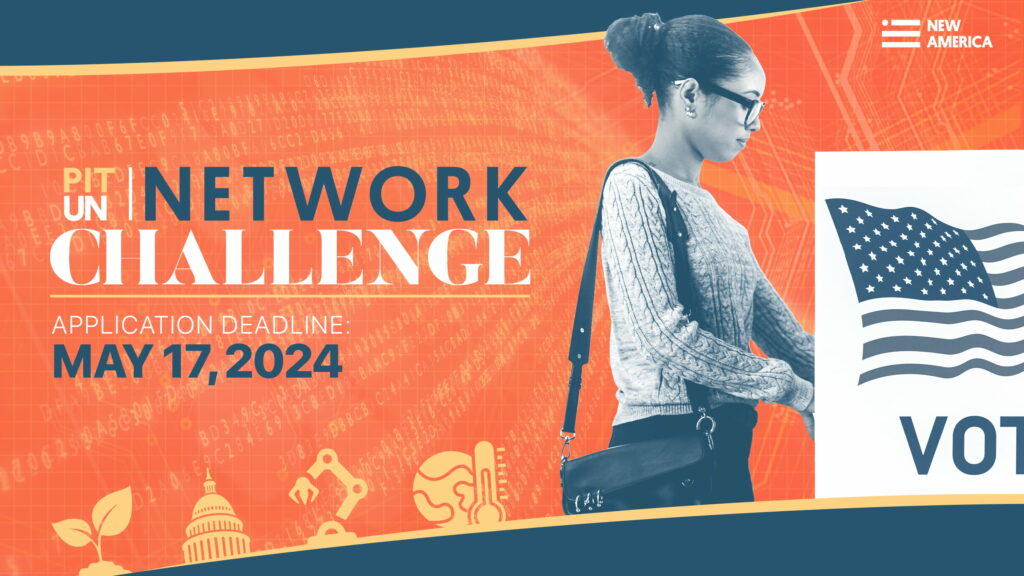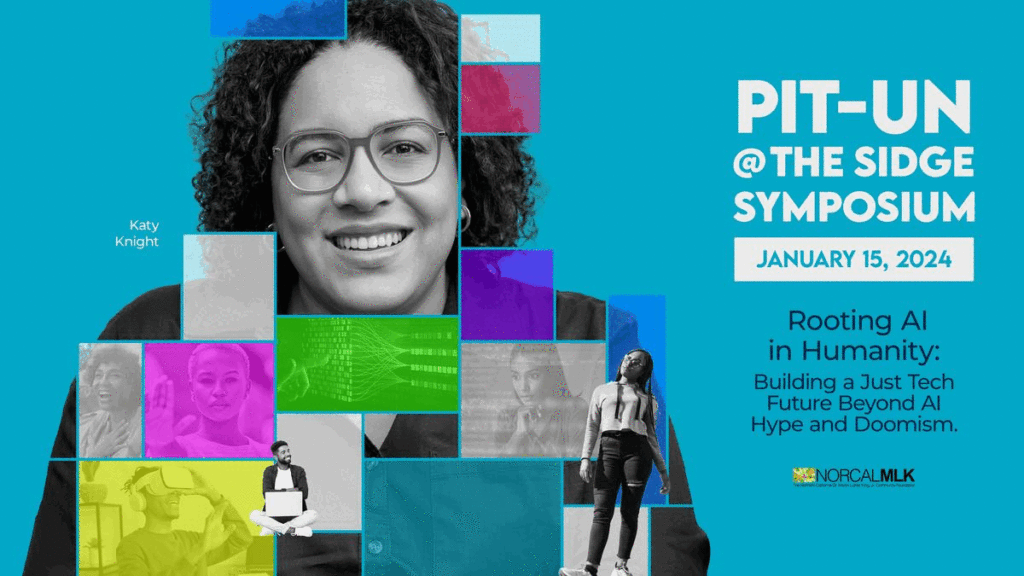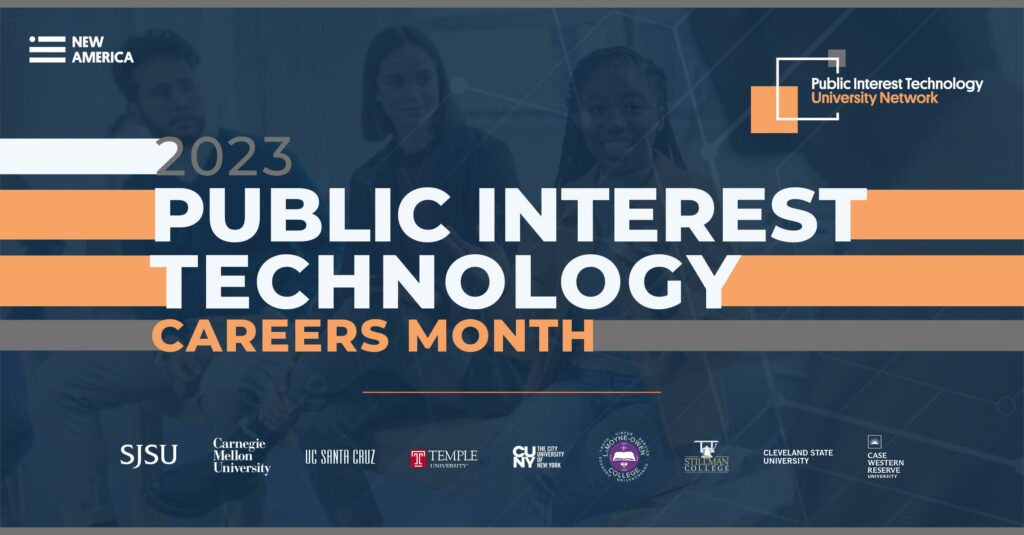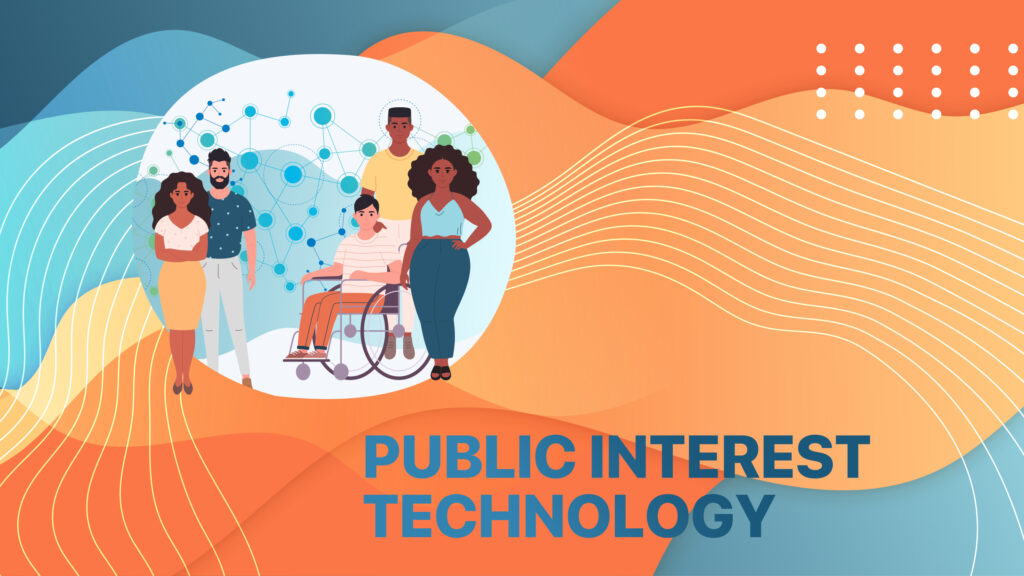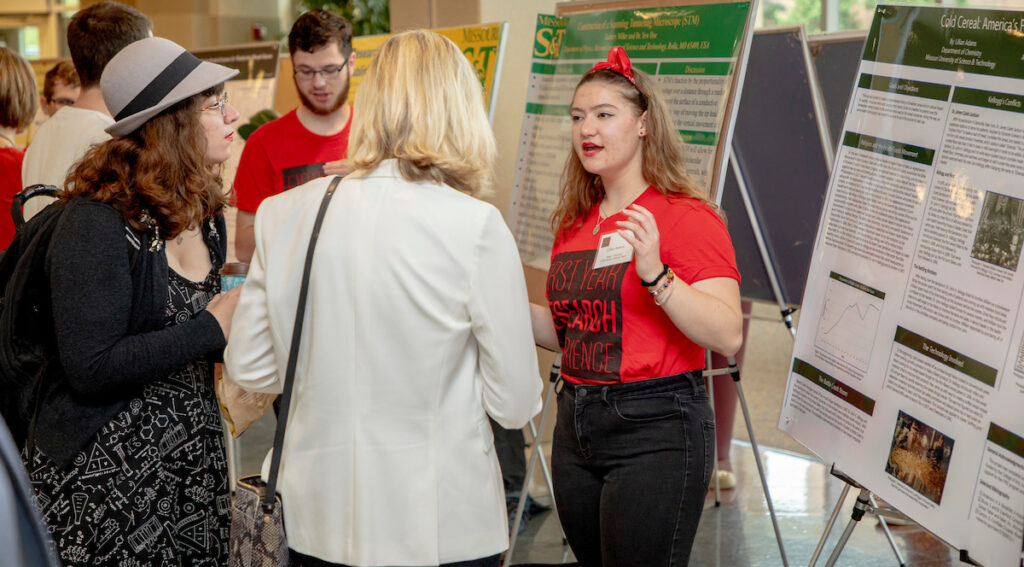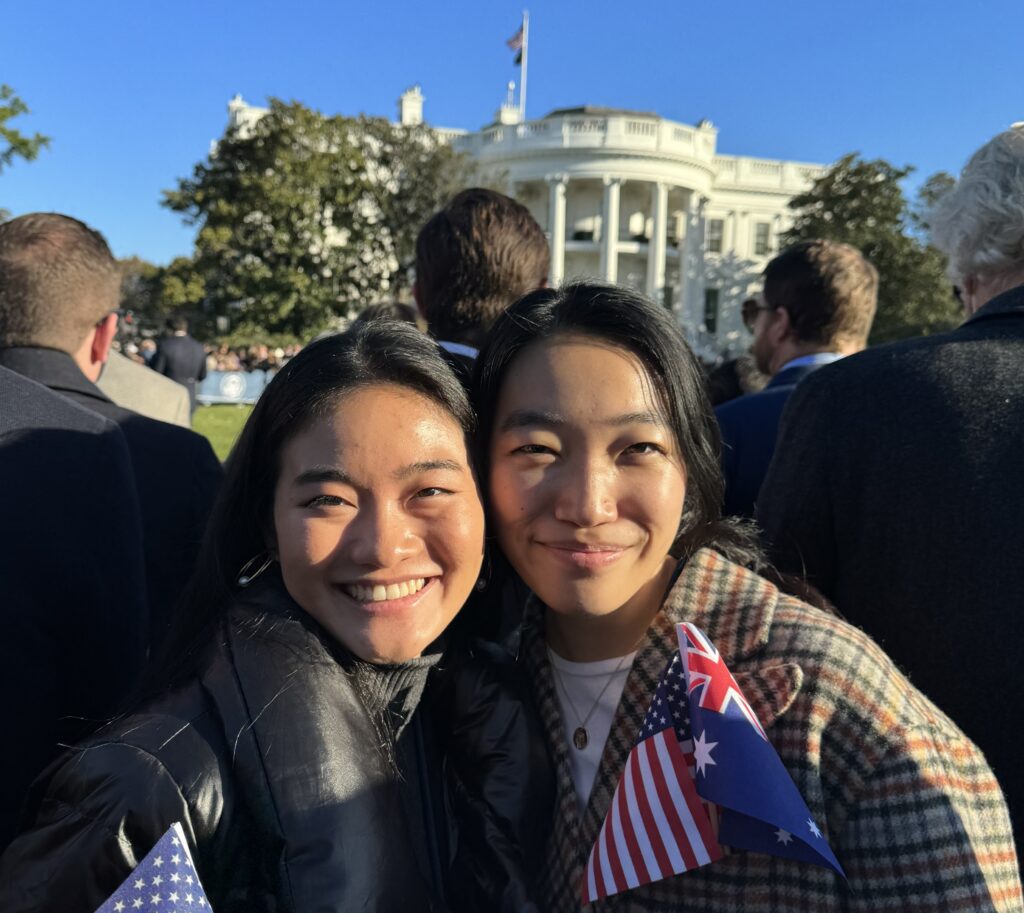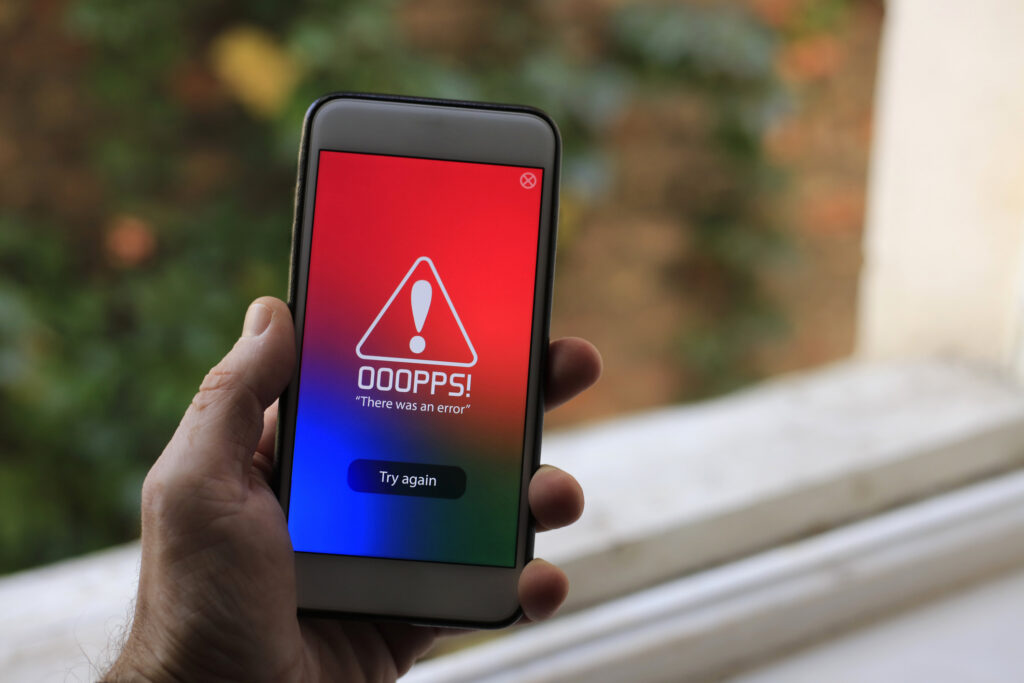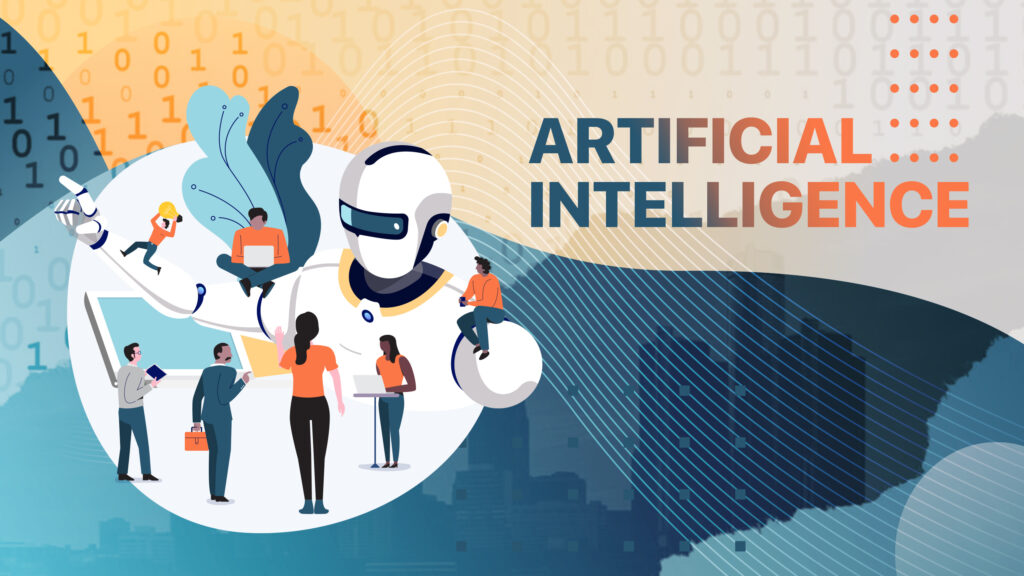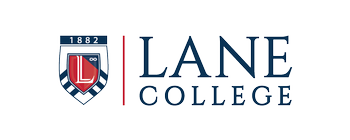The Public Interest Technology
University Network
PIT-UN fosters collaboration between universities and colleges to build the field of public interest technology and nurture a new generation of civic-minded technologists.
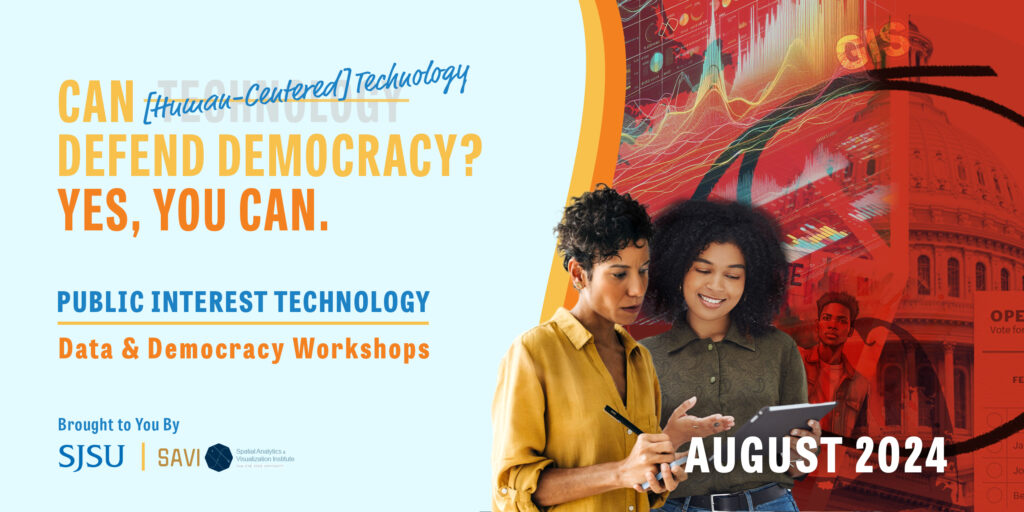
Summer Learning Opportunity
Data & Democracy Workshops
These virtual workshops with experts from San José State University will empower election officials, policy professionals, and researchers to undertake data-driven projects that bolster free and fair elections. Learn Python, R and open source GIST (Geospatial Information Science & Technology) skills to unlock the power of data in designing and administering elections to defend democracy in 2024 and beyond.
The workshops are now eligible Certification Maintenance credit from the American Institute of Certified Planners (AICP).
Events
2024 PIT-UN Summit
The marquee event for public interest technologists from across sectors took place November 7-8, 2024 at San José State University.
Leaders from across Silicon Valley and beyond, including representatives from the corporate, government, and nonprofit sectors, shared unique perspectives on their work in PIT, and where they see the field heading after the 2024 presidential election.
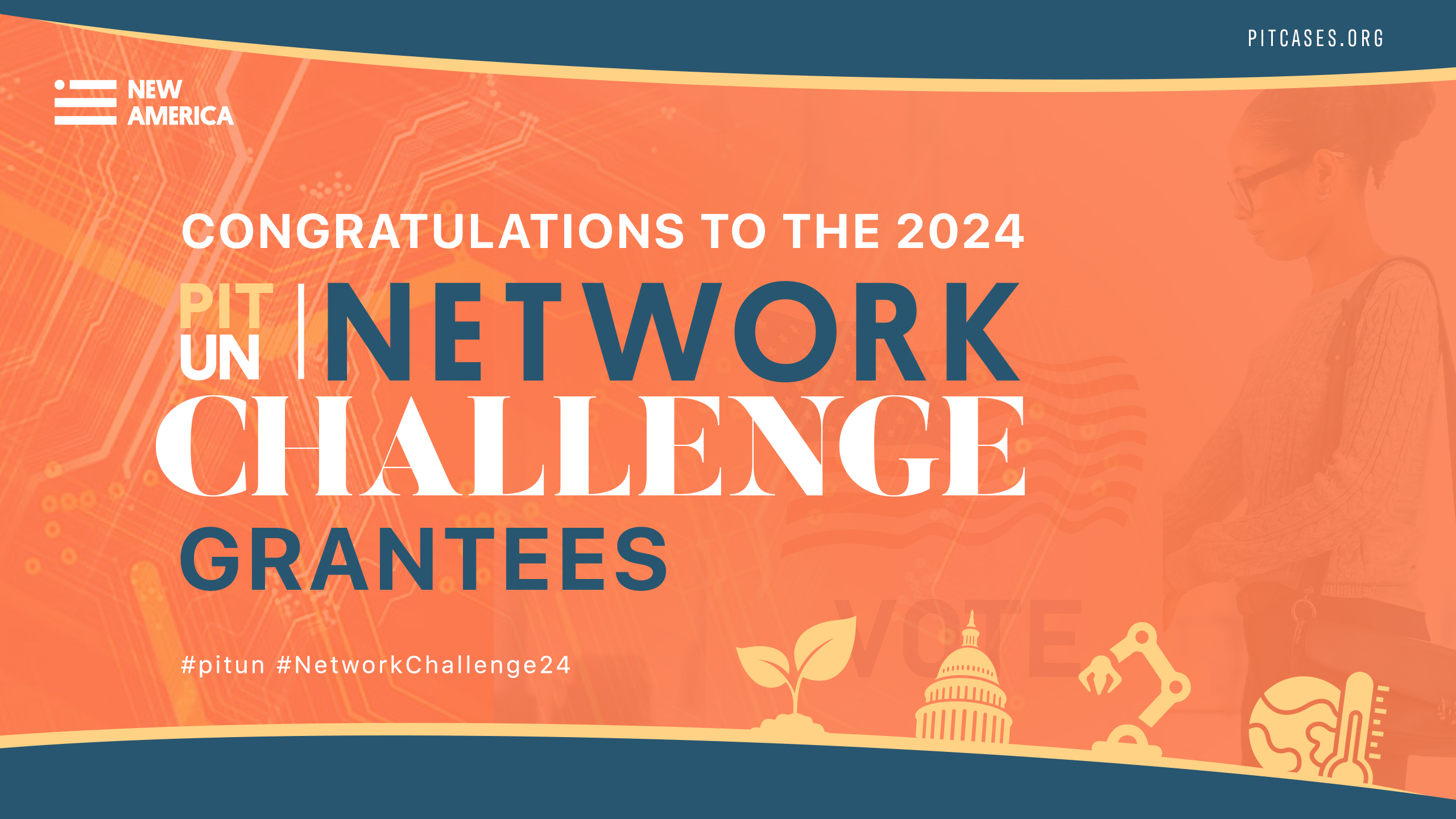
PIT-UN Network Challenge
Announcing the 2024 Grantees
The Public Interest Technology University Network (PIT-UN) is pleased to announce our 2024 Network Challenge Grantees, whose public interest technology (#PIT) projects will advance equitable innovation in technology across academia, government and civil society.
In its sixth year, the Network Challenge will distribute just under $1 million to 10 projects led by PIT-UN members.
Events
PIT Career Fairs
PIT career fairs build connections between universities developing civic-minded technologists and employers in industry, government and civil society.
Career services at seven host universities across the U.S. are seeking employers interested in hiring PIT students, and PIT professionals eager to meet with students at career exploration events.


Request for Proposal
Tech for Change Hackathon
TFC Hackathons are civic-focused, community-driven, and deployed by students to address local injustices in healthcare, elections, education or other public interest areas.
Winning proposals will include participation of students from across technical and nontechnical disciplines. Applications are now closed, and winners will be announced soon.
Closed Request for Proposal
The Network Challenge
The Public Interest Technology University Network (PIT-UN) Challenge is a unique program that drives equitable innovation in technology across academia, government, industry and civil society.
All PIT-UN Members are eligible, and the application submission window is now closed.
Public Interest Tech and Civil Rights
PIT-UN at the SIDGE Symposium
The Public Interest Technology-University Network (PIT-UN) co-hosted four events over MLK Weekend, 2024 with the Northern California Dr. Martin Luther King Jr. Community Foundation.
Watch panels & keynotes with leading public interest technologists Safiya Noble, Latanya Sweeney, Fallon Wilson, Afua Bruce & more.
2023 PIT-UN Convening
Videos & Photos are Live
Thank you to Boston University’s Faculty of Computing and Data Sciences for hosting the 2023 PIT-UN Convening.
Videos of all the sessions, including transcripts of the keynotes, are available for review below.
PIT Careers Month
Career Fair Snapshot
Nearly 1,400 students and over 150 employers from nonprofits, government and industry were engaged during the inaugural PIT Careers Month in October, 2023.
Funded by the PIT University Network (PIT-UN), six leading colleges and universities took critical steps in building career pipeline infrastructure for the fast growing field of PIT.
Our Impact
3x
Member Institution Growth from 21 to 63 (2019-2023)
156
Across the Nation
$16m
Grantee Projects Funded Since 2019
Member Only Benefits
PIT Opportunities


